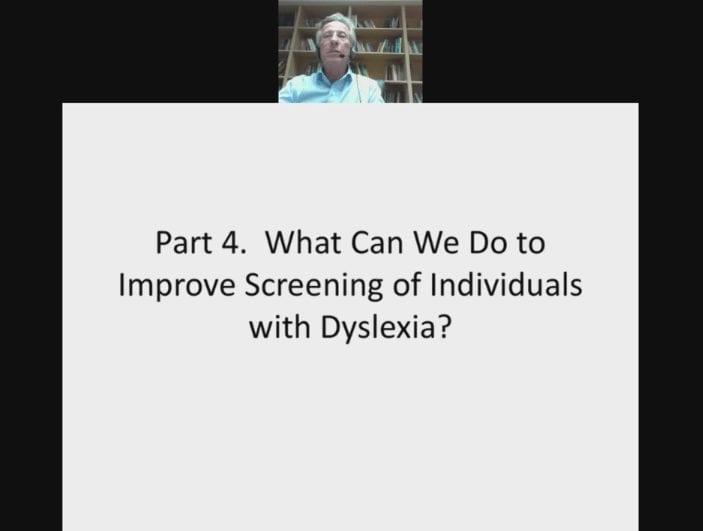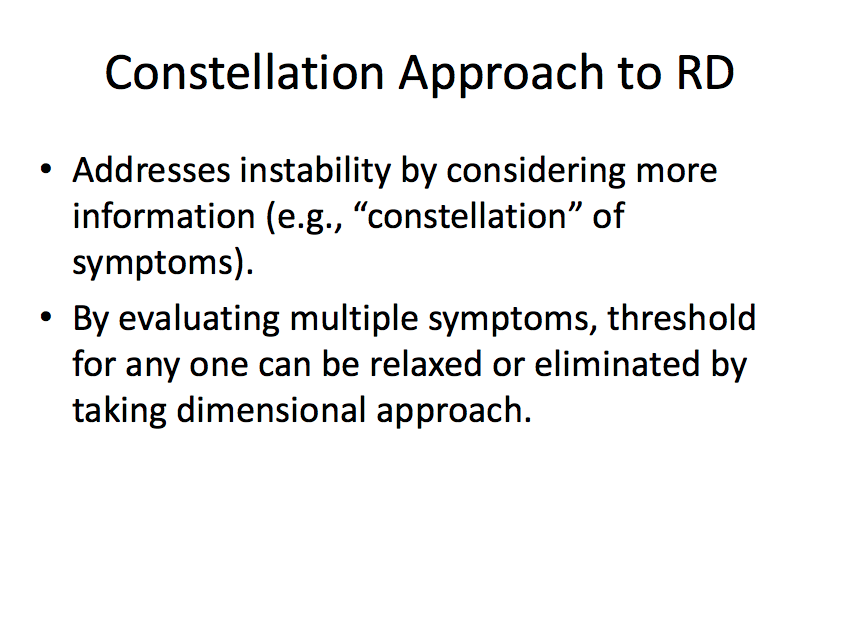Research to Better Support Your Students with Reading Disabilities
Current approaches to identifying students with reading disabilities are often problematic and ineffective, and will not lead students to academic success. Significant improvements in identification and screening have been made to provide greater support, and earlier. In “Cutting-Edge Research to Empower Schools to Support Students with Reading Disabilities,” Rick Wagner, Associate Director for the Florida Center for Reading Research, discussed problems with current methods and how to better help students with these disabilities.
Research tells us that dyslexia is due to a problem in language rather than in vision, specifically the phonological system, which is used for processing speech sounds. Phonological processing refers to using speech sounds for coding information when reading, listening, and speaking. Although it’s important to assess for phonological abilities like phonological awareness, phonological memory, and rapid naming, these alone should not determine whether one has dyslexia. “It’s important to do a comprehensive assessment that extends beyond phonological processing,” said Rick.
A fundamental problem in identifying individuals with dyslexia is that existing operational definitions of reading disability produce unstable phenotypes-meaning someone could be identified as having a reading disability during one test, but not during a second test. To improve identification of individuals with dyslexia, information can be combined. Combining information about basic factors of dyslexia-such as poor non-word decoding, impoverished sight-word vocabulary, and phonological impairment-will reduce errors by looking at multiple indicators. This is called a constellation approach because it addresses instability by considering a “constellation” of symptoms.
With the current system, students aren’t identified until second or third grade, which is too late. Ideally, a universal screening system could be implemented. However, since current screening measures are not very accurate, this can still lead to issues like false positives: predicting the presence of problem when none exists. To improve screening of phonological processing, particularly in preschool children, assess memory as well as awareness since they measure nearly the same underlying ability. Another method, reverse screening, can be implemented by using the screeners to identify students who are not at risk.
Students with severe dyslexia may fail to respond to a multi-tiered system of support, are often not provided with appropriate interventions, and can even develop negative self-concepts about their ability to do well academically. Using assistive technology in the form of computer-based text-to-speech or human-recorded audiobooks can help students with reading problems sooner and more comprehensively. According to Rick, it should be noted that certain factors could affect the maximal benefit. For example, if listening comprehension is no better than reading comprehension, assistive technology may not be beneficial. It is also not yet clear how much time should be spent on intervention versus using assistive technology. Although research is currently studying these specific factors, students can achieve significantly with improved identification, screening, and support.
This broadcast was hosted by edWeb.net and sponsored by Learning Ally.
This article was modified and published by eSchool News.
About the Presenter
Richard Wagner is the Robert O. Lawton Distinguished Research Professor of Psychology and the Morcom Chair at Florida State University. He also is a co-founder and a current associate director of the Florida Center for Reading Research. He earned a master’s degree in school psychology from the University of Akron. He then earned a Ph.D. in cognitive psychology from Yale University in 1985. His major area of research interest is dyslexia and the normal acquisition of reading. He currently is the principal investigator of a Multidisciplinary Learning Disability Center funded by the National Institute of Child Health and Human Development (NICHD). He recently served on the California advisory group charged with developing dyslexia guidelines for the state. He has coauthored tests that are commonly used including the Comprehensive Test of Phonological Processing (CTOPP-2), the Test of Word Reading Efficiency (TOWRE-2), and the Test of Preschool Early Literacy (TOPEL).
Join the Community
Empowering Struggling Readers is a free professional learning community that provides educators, administrators, special educators, curriculum leaders, and librarians a place to collaborate on how to turn struggling readers into thriving students.






Comments are closed.